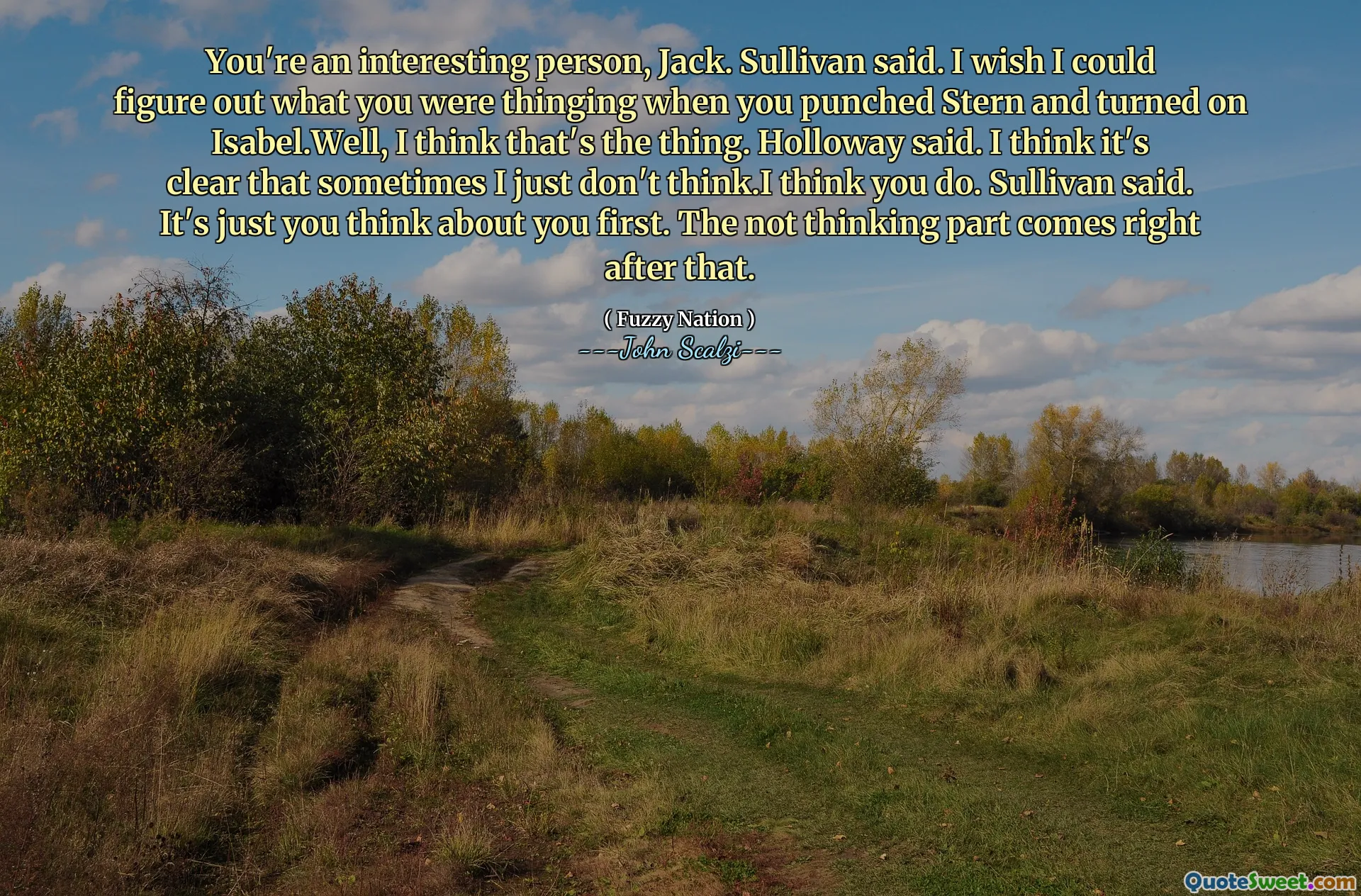
You're an interesting person, Jack. Sullivan said. I wish I could figure out what you were thinging when you punched Stern and turned on Isabel.Well, I think that's the thing. Holloway said. I think it's clear that sometimes I just don't think.I think you do. Sullivan said. It's just you think about you first. The not thinking part comes right after that.
In the discussion between Jack and Sullivan, the complexity of Jack's character is brought to light. Sullivan acknowledges Jack's intriguing nature and expresses curiosity about his impulsive decisions, particularly the moments when he acted aggressively and distanced himself from Isabel. This reveals Sullivan’s perspective on Jack as someone whose choices seem to stem from deeper motivations.
Holloway's response suggests that Jack may not always be fully aware of his actions. While he admits to a lack of foresight, Sullivan counters this by implying that Jack's decisions are often self-serving. The interaction highlights a dynamic tension between self-awareness and self-centeredness in Jack's personality, raising questions about the reasons behind his behavior and the choices he makes.







